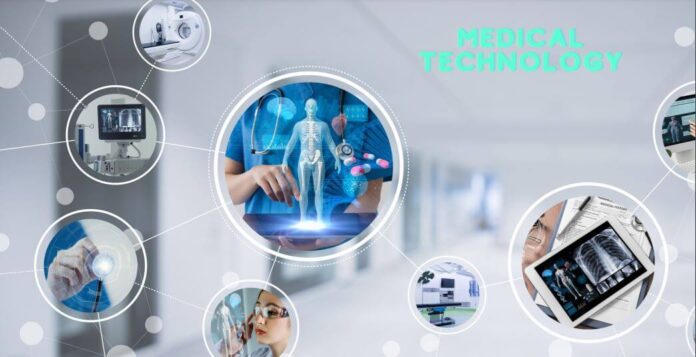The field of Medical Technology concerns any application of technology related to the development, distribution and use of medical devices. The term “medical device” covers a wide range of products, from disposable materials, implants, in-vitro diagnostic reagents to high-cost medical devices. Today, new technologies offer patients a number of benefits, such as early diagnosis, faster recovery and recovery, much shorter hospital stays and therefore a quick return to their daily routine. But in addition to the better quality of life of patients, the benefits of using the achievements of medical technology make the health system more efficient, as the length of stay of patients in the hospital is reduced while at the same time less employment of medical staff is achieved. More broadly, the adoption of the use of modern medical technology also has socio-economic implications such as increased productivity and especially survival. Important areas of research and development in this field are regenerative medicine, stem cells, robotics, biomaterials and nanotechnology.
Regenerative Medicine
In recent years, in addition to therapies based on pharmaceutical and biological products or medical equipment, regenerative medicine has entered the clinical field impressively, and through cell therapy is the fourth and most promising pillar for world health. Cell and tissue biomechanics, together with Cellular Treatment and use of stem cells, can meet the requirements of many serious diseases and related problems public health. The interdisciplinary approach of different fields such as Tissue Biomechanics, Cellular and Molecular Biology promises to lead to the creation of new prognostic and therapeutic means for the treatment of serious diseases.
Stem cells
Interest has recently turned to her field regenerative medicine and specifically in use stem cells to repair tissue damage in various diseases, tissue dysfunctions or injuries. It is clear that stem cells are monopolizing interest more than any other field in Biology in recent years and are important tools in finding potential therapies for degenerative diseases and in Renaissance Medicine.
Regenerative Medicine has introduced new methods for replacing or regenerating cells, tissues or organs that include, but are not limited to, cell therapy, the use of biomaterials, or the use of scaffolding.
Autologous or allogeneic cells (cell replacement), genetically modified cells (cell-based gene therapy), stem or progenitor cells cultured in scaffolds are used for this purpose.
Robotic Technology in Health

The value of robotic technology in the field of health is important both socially and economically. Iconography essentially promises the sustainable and affordable provision of health services without compromising on the quality of care. There are already products available on the market, such as the Da Vinci surgical robot. Although this is only the beginning, clear goals and guidance in research and development efforts are needed to translate existing challenges (technological, economic, ethical, social) into practical and beneficial solutions. The potential of robotic systems is enormous.
Questions such as which applications will provide added value in the field of health, which products can meet the real needs of this market and what technologies are needed to implement these systems have already been answered or implemented to a satisfactory level. Some technologies are available, there are several that have not yet matured or are under investigation before being applied to the sensitive healthcare sector.
Researchers and experts in the field have identified six areas that can be considered mature for further research:
1. Smart medical capsules.
2. Surgery.
3. Clever intent.
4. Analysis and treatment coordinated by the movement of the uterus.
5. Robot-based mental, cognitive and social therapies.
6. Patient monitoring systems through sedative mechanisms.
Nanotechnology in field of Health
The application of nanotechnology for health care or otherwise nanomedicine (nanomedicine) offers important tools of diagnosis and treatment. The adoption of such solutions is expected to provide specialized and more effective treatments while reducing health costs and improving the quality of life of citizens. Research is intensifying in the fields of medicines, diagnostics, biomaterials, regenerative medicine and smart prostheses. For example, the creation of suitable nano systems smaller than 50 nm would allow them to enter most cells, while devices smaller than 20 nm could penetrate the blood vessels. In this way, it is now possible to overcome important biological barriers, such as the blood-brain barrier and the gastric epithelium, which block drugs and contrast agents to reach some volumes. Also, the size of the nanodevices allows them interact with biomarkers located on both sides of the cell membrane, as well as within the cell, not affecting the behaviour and biochemical properties of these limits.



